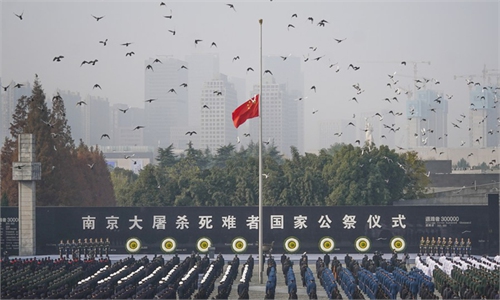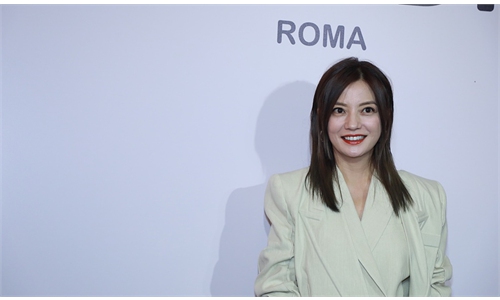
Zhu Yilong and Gong Jun Photo:VCG
Two more Chinese actors have been caught up in a social media controversy over alleged photos with war shrines in Japan, just weeks after a Chinese actor was boycotted over his visit to the notorious Japanese Yasukuni Shrine.
Such a growing trend underscored strong public sentiment in China toward Japan due to the latter's escalating political provocations against China, which could be a dangerous sign for intense China-Japan relations, Chinese observers warned.
Some netizens slammed actor Gong Jun for showcasing a peristele written "Kyoto Ryozen Gokoku Shrine" when he recorded a Vlog in front of cameras. Some even accused Gong of visiting the shrine during his stay in Japan just by seeing the section of the Vlog, calling for an industry boycott.
Gong co-starred with Zhang Zhehan in a martial arts TV drama Word of Honor. Zhang faced an industry boycott last month, after he posed for pictures at the Yasukuni Shrine, angering the Chinese public.
Although both Gong and his studio on Thursday denied such accusations, the topic remained popular on Chinese social media platforms. The studio clarified in a statement that the scene captured in the Vlog is a popular tourist spot and Gong just passed by without paying any attention to the background after he purchased an ice cream.
"I never went to the shrine and will never go as well," Gong said on his personal Sina Weibo account.
Another Chinese actor Zhu Yilong also faces a similar controversy on social media. Some netizens slammed Zhu for visiting a shrine, called Heian Shrine, after the actor was believed to have taken selfies there in 2016.
Zhu has not responded to the controversy yet as of press time on Friday, but related topics on social media have garnered more than 92.3 million views as of press time. And voices calling for a boycott continue to get louder.
Da Zhigang, director and research fellow of the Institute of Northeast Asian Studies at Heilongjiang Provincial Academy of Social Sciences, told the Global Times that Japan's stronger proactive tone toward China, especially regarding the Taiwan question, are igniting Chinese public sentiments over Japan, resulting in some discontent and annoyance. This could be a dangerous sign for China-Japan relations, Da warned.




